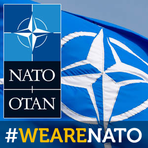The Tug of War: Ukraine, China, and the Shadow of Russia
July 26, 2024, 9:52 pm

Location: China, Hong Kong, Hong Kong Island
Employees: 1001-5000
Founded date: 1835
In the complex chess game of international relations, Ukraine is making its move. The stakes are high, and the pieces are in constant motion. Recently, Ukraine's Foreign Minister Dmytro Kuleba visited China, seeking to engage with Russia's most significant ally. His message was clear: Russia is not ready for genuine negotiations to end the ongoing war. This statement, delivered in Beijing, underscores the tension and uncertainty that permeate the current geopolitical landscape.
Kuleba's visit comes at a time when China is attempting to position itself as a mediator in the conflict. The Chinese government has been vocal about its desire for a "political settlement." However, Western nations are skeptical. They fear that any peace plan could allow Russia to maintain control over the territories it has seized in Ukraine. This concern is not unfounded. The shadows of past agreements linger, reminding the world of the delicate balance between peace and power.
China's role in this conflict is multifaceted. On one hand, it has provided a lifeline to Russia's struggling economy. On the other, it has faced scrutiny from the West for its support of Moscow. The U.S. and European nations have accused China of supplying critical components to bolster Russia's military capabilities. This duality creates a precarious situation for Beijing. It must navigate its relationship with Russia while also considering its standing with Western powers.
Kuleba's arrival in China was not just a courtesy call. It was a strategic move. He urged China to view its relationship with Ukraine through the lens of its strategic ties to Europe. This perspective is crucial. As the war drags on, the implications of China's decisions ripple across the globe. The world watches closely, waiting to see if China will step up as a true mediator or continue to play both sides.
The backdrop of this diplomatic dance is the ongoing conflict in Ukraine. The war has claimed countless lives and devastated communities. As the Paris Olympics approach, Ukraine mourns the loss of over 300 athletes who have died due to the war. This tragedy adds a poignant layer to Kuleba's discussions in China. The stakes are not just political; they are deeply personal.
Meanwhile, the U.S. military continues its operations in the region, conducting flights over international waters. These maneuvers, while legal, have heightened tensions. Russia claims these flights increase the risk of direct confrontation. The rhetoric is sharp, and the stakes are rising. The world stands on a knife's edge, where one misstep could lead to a significant escalation.
In this environment, Kuleba's call to avoid competition between peace plans is critical. The idea of multiple peace proposals competing for attention could lead to confusion and further entrenchment of positions. Instead, a unified approach is necessary. This requires cooperation not just from Ukraine and Russia, but also from China and the West.
China's absence from a recent peace summit in Switzerland speaks volumes. It protested the exclusion of Russia, highlighting its commitment to its ally. Yet, this stance complicates its role as a mediator. If China is to be taken seriously in its calls for peace, it must engage constructively with all parties involved. Kuleba's visit is a step in that direction, but it remains to be seen how receptive China will be.
The dynamics of this conflict are further complicated by economic factors. China has been a critical partner for Russia, providing much-needed support amid Western sanctions. However, this partnership is under scrutiny. The U.S. has vowed to target financial institutions that facilitate Russia's war efforts. This creates a dilemma for China. It must balance its economic interests with the potential fallout from its support of Russia.
As the world watches, the question remains: will China step up as a genuine mediator, or will it continue to play both sides? Kuleba's visit is a signal that Ukraine is willing to engage, but it needs more than just dialogue. It requires action and commitment from all parties involved.
In conclusion, the situation in Ukraine is a complex tapestry woven with threads of diplomacy, conflict, and economic interests. Kuleba's visit to China is a crucial chapter in this ongoing saga. The outcome remains uncertain, but one thing is clear: the world is watching. The decisions made in the coming weeks will shape the future of not just Ukraine, but the entire geopolitical landscape. The game is on, and every move counts.
Kuleba's visit comes at a time when China is attempting to position itself as a mediator in the conflict. The Chinese government has been vocal about its desire for a "political settlement." However, Western nations are skeptical. They fear that any peace plan could allow Russia to maintain control over the territories it has seized in Ukraine. This concern is not unfounded. The shadows of past agreements linger, reminding the world of the delicate balance between peace and power.
China's role in this conflict is multifaceted. On one hand, it has provided a lifeline to Russia's struggling economy. On the other, it has faced scrutiny from the West for its support of Moscow. The U.S. and European nations have accused China of supplying critical components to bolster Russia's military capabilities. This duality creates a precarious situation for Beijing. It must navigate its relationship with Russia while also considering its standing with Western powers.
Kuleba's arrival in China was not just a courtesy call. It was a strategic move. He urged China to view its relationship with Ukraine through the lens of its strategic ties to Europe. This perspective is crucial. As the war drags on, the implications of China's decisions ripple across the globe. The world watches closely, waiting to see if China will step up as a true mediator or continue to play both sides.
The backdrop of this diplomatic dance is the ongoing conflict in Ukraine. The war has claimed countless lives and devastated communities. As the Paris Olympics approach, Ukraine mourns the loss of over 300 athletes who have died due to the war. This tragedy adds a poignant layer to Kuleba's discussions in China. The stakes are not just political; they are deeply personal.
Meanwhile, the U.S. military continues its operations in the region, conducting flights over international waters. These maneuvers, while legal, have heightened tensions. Russia claims these flights increase the risk of direct confrontation. The rhetoric is sharp, and the stakes are rising. The world stands on a knife's edge, where one misstep could lead to a significant escalation.
In this environment, Kuleba's call to avoid competition between peace plans is critical. The idea of multiple peace proposals competing for attention could lead to confusion and further entrenchment of positions. Instead, a unified approach is necessary. This requires cooperation not just from Ukraine and Russia, but also from China and the West.
China's absence from a recent peace summit in Switzerland speaks volumes. It protested the exclusion of Russia, highlighting its commitment to its ally. Yet, this stance complicates its role as a mediator. If China is to be taken seriously in its calls for peace, it must engage constructively with all parties involved. Kuleba's visit is a step in that direction, but it remains to be seen how receptive China will be.
The dynamics of this conflict are further complicated by economic factors. China has been a critical partner for Russia, providing much-needed support amid Western sanctions. However, this partnership is under scrutiny. The U.S. has vowed to target financial institutions that facilitate Russia's war efforts. This creates a dilemma for China. It must balance its economic interests with the potential fallout from its support of Russia.
As the world watches, the question remains: will China step up as a genuine mediator, or will it continue to play both sides? Kuleba's visit is a signal that Ukraine is willing to engage, but it needs more than just dialogue. It requires action and commitment from all parties involved.
In conclusion, the situation in Ukraine is a complex tapestry woven with threads of diplomacy, conflict, and economic interests. Kuleba's visit to China is a crucial chapter in this ongoing saga. The outcome remains uncertain, but one thing is clear: the world is watching. The decisions made in the coming weeks will shape the future of not just Ukraine, but the entire geopolitical landscape. The game is on, and every move counts.
